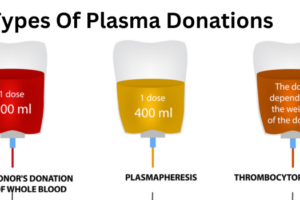
1. Marketing automation system – what is it and what are its benefits?
A marketing automation system is a software that helps automate marketing processes. It can automate tasks such as email marketing, social media campaigns, and targeted ads. Marketing automation can also help to segment customers, track customer engagement, and measure campaign performance.
Benefits of using a marketing automation system include:
– Increased efficiency: Automating marketing processes can save time and increase efficiency.
– Improved accuracy: Automated systems can help to improve the accuracy of marketing tasks such as email marketing and targeted ads.
– Increased engagement: Automated systems can help to increase customer engagement by sending timely, relevant communications.
– Improved ROI: Automated systems can help to improve the ROI of marketing campaigns by increasing efficiency and engagement.
2. The different types of marketing automation systems.
There are many different types of marketing automation systems available on the market today. However, not all of these systems are created equal. In fact, there are some significant differences between the various types of marketing automation systems that are available. Here, we will take a look at some of the different types of marketing automation systems and explore the key differences between them.
One of the most popular types of marketing automation systems is the email marketing automation system. Email marketing automation systems are designed to help businesses automate their email marketing activities. These systems typically include a range of features, such as email list management, email template creation, and email campaign tracking. Email marketing automation systems can be a great way to improve your email marketing efficiency and effectiveness.
Another popular type of marketing automation system is the social media marketing automation system. Social media marketing automation systems are designed to help businesses automate their social media marketing activities. These systems typically include a range of features, such as social media account management, social media content creation, and social media campaign tracking. Social media marketing automation systems can be a great way to improve your social media marketing efficiency and effectiveness.
Finally, there are webinar marketing automation systems. Webinar marketing automation systems are designed to help businesses automate their webinar marketing activities. These systems typically include a range of features, such as webinar registration management, webinar template creation, and webinar campaign tracking. Webinar marketing automation systems can be a great way to improve your webinar marketing efficiency and effectiveness.
Visit Here for a specific information about marketing automation.
3. The top marketing automation systems on the market.
There are a number of marketing automation systems on the market, each with its own set of features and benefits. Here are three of the top marketing automation systems on the market today:
1. Salesforce Pardot
Salesforce Pardot is a powerful marketing automation system that helps businesses accelerate sales and improve marketing ROI. Pardot provides a suite of tools to help businesses automate their marketing processes, including email marketing, lead management, leadscoring, and nurturing. Pardot also integrates with Salesforce CRM, making it a powerful tool for sales and marketing alignment.
2. HubSpot
HubSpot is a leading marketing automation system that helps businesses attract, engage, and delight customers. HubSpot provides a suite of tools to help businesses grow their traffic, convert leads into customers, and track their marketing ROI. HubSpot also offers a free CRM, making it a good option for businesses on a tight budget.
3. Marketo
Marketo is a powerful marketing automation system that helps businesses accelerate sales and improve marketing ROI. Marketo provides a suite of tools to help businesses automate their marketing processes, including lead management, leadscoring, and nurturing. Marketo also integrates with Salesforce CRM, making it a powerful tool for sales and marketing alignment.
4. How to choose the right marketing automation system for your business.
As your business grows, you’ll need to start thinking about how to scale your marketing efforts. One way to do this is to invest in a marketing automation system.
There are a lot of different marketing automation systems on the market, so how do you know which one is right for your business?
Here are four things to consider when choosing a marketing automation system:
1. Your budget
The first thing to consider is your budget. There are a lot of different marketing automation systems out there, and they all come with different price tags.
Some systems are more expensive than others, so you’ll need to consider what you’re willing to spend.
2. Your needs
The next thing to consider is your needs. What are you looking for in a marketing automation system?
Do you need something that’s easy to use? Do you need a lot of features? Do you need something that integrates with your other business systems?
Think about what you need from a marketing automation system and then look for a system that meets those needs.
3. Your team
Another thing to consider is your team. Who will be using the marketing automation system?
Do you have a large team that needs to be able to use the system? Or do you have a small team that can be trained on how to use the system?
Think about your team and their needs when choosing a marketing automation system.
4. Your goals
Finally, you need to think about your goals. What are you hoping to achieve with your marketing automation system?
Do you want to increase leads? Do you want to increase sales? Do you want to improve your customer service?
Think about your goals and choose a marketing automation system that will help you achieve those goals.
5. The future of marketing automation systems.
The concept of marketing automation is not new. In fact, it has been around for decades in one form or another. However, it is only in recent years that marketing automation systems have become more sophisticated and widely used.
There are several reasons for this. First, the growth of the internet and social media has created new opportunities for marketing automation. Second, the rise of data-driven marketing has made marketing automation more effective and efficient.
So, what does the future hold for marketing automation systems?
1. Increased use of AI and machine learning
One of the most exciting aspects of marketing automation is the increasing use of artificial intelligence (AI) and machine learning. These technologies are already being used to great effect by some of the leading marketing automation platforms.
For example, AI can be used to identify patterns in customer behavior and then trigger the most appropriate marketing actions. Machine learning can be used to continuously improve the effectiveness of marketing campaigns.
2. Greater personalization
Another trend that is set to continue is the move towards greater personalization. Thanks to AI and machine learning, marketing automation systems are becoming increasingly good at understanding individual customers and tailoring marketing messages accordingly.
3. More use of data
As marketing automation systems become more sophisticated, they will increasingly rely on data to drive their decisions. This means that marketers will need to become more data-savvy in order to get the most out of their marketing automation.
4. Greater integration with other systems
Marketing automation systems will continue to become more integrated with other business systems, such as CRM and ERP. This will make it easier for marketers to manage all of their customer data in one place and trigger the most appropriate marketing actions.
5. Continued growth
It is clear that marketing automation is here to stay. Thanks to the continued growth of the internet and social media, along with the rise of data-driven marketing, marketing automation systems are only going to become more popular and more essential for businesses.






